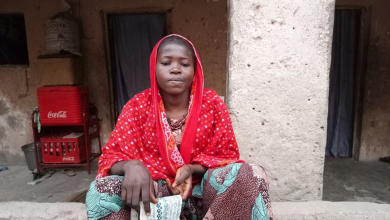
|
Getting your Trinity Audio player ready...
|
In Nigeria, the healthcare system often reveals a disturbing truth: it is designed to heal, yet it perpetuates a culture of medical misogyny that mirrors the insidious foundations of rape culture. As a child who frequently visited hospitals because my parent was a healthcare worker, I witnessed the appalling reality of women being denied care simply because they refused to be treated by male practitioners. This entitlement to women’s bodies for the sake of male learning not only disregards their autonomy but also reflects a broader societal issue that prioritises male desires over women’s rights.
Let’s be clear on one thing: the idea that a man’s education is more important than a woman’s right to bodily autonomy is absurd. How do we train young girls to cover up, teaching them that their nudity is inherently sexual while simultaneously blaming them for refusing to undress at the request of male medical students?
Chimamanda Ngozi Adichie succinctly captures this culture by stating, “We teach girls shame. Close your legs. Cover yourself. We make them feel as though being born female, they are already guilty of something.” We also are told their bodies exist for male consumption.
Female medical students face a similar dynamic when dealing with male patients in urology wards. These women understand the importance of consent and respect for boundaries, navigating their roles with professionalism. However, they often remain silent about the frustrations they experience, knowing that refusing to participate in examinations without consent is not only their right but an ethical obligation. It’s telling that they do not complain, as they have internalised the importance of respecting patient autonomy, something many male students seem to overlook.
The principle of respect for persons is fundamental in both human research and medical practice. Informed consent is essential, ensuring that individuals are treated with dignity and autonomy. Yet, in many teaching hospitals, women are treated as mere subjects for male education rather than as individuals with rights. This is evident in the attitudes of some male students, who prioritise their learning over women’s comfort and autonomy.
Consider the disturbing reality: women frequently endure inappropriate comments from doctors, including remarks about their bodies, requests for their phone numbers after consultations, and even absurd prescriptions like pregnancy as a “cure” for various ailments. This objectification reduces women to mere vessels for male gratification, completely disregarding their dignity as patients.
In a notable medical school in Lagos, reports have surfaced of male students sexually assaulting their female counterparts, often with little to no repercussions. Is this truly the environment where women are expected to feel safe and vulnerable? The reality is chilling: these students are being trained in a system that fails to protect them and reinforces the idea that their bodies are up for grabs.
Take, for instance, the words of a male student, Efoya: “How do you expect me to be good at O&G when for every 4 in 10 patients that present in gynae clinic, I’m excused from examinations because I’m a guy and the patients’ rights have to be upheld.”
This statement reveals an alarming sense of entitlement. His concern lies not with the women’s autonomy but with his own education. It’s telling that he cares more about the four women who didn’t consent than the six who might. This mindset highlights a culture that prioritises male learning over female dignity.
Another troubling account comes from Dr. Ned, who remarked,
“This is interesting; it didn’t happen in my centre. The one time a woman was proving difficult, the consultant, who was female reminded her that it was a teaching hospital for a reason. If she insists on not wanting students, she herself would not see her, and we all left.” This attitude shows how even female consultants can perpetuate a system that undermines women’s rights, dismissing their concerns for the sake of institutional demands.
This isn’t just about individual attitudes; it’s a systemic failure that demands urgent attention. Women entering Nigerian healthcare facilities face a patriarchal system that insists their bodies serve as teaching tools without consent. Refusing male touch often brands them as “difficult patients,” leading to inadequate care or outright neglect. So, when will medical education adapt to respect women’s boundaries instead of demanding women adapt to the needs of men?
The reform needed in Nigerian medical education must begin with a fundamental shift in how we view patient consent and women’s autonomy in healthcare settings. Male medical students must learn that their educational rights end where women’s bodily autonomy begins. Teaching hospitals should prioritise patient dignity over student practice needs.
It’s time to demand a healthcare system that doesn’t require women to sacrifice their autonomy for the sake of male medical education. Until Nigerian medicine confronts and dismantles these patriarchal foundations, our hospitals will remain unsafe spaces for women.
In conclusion, the entitlement to women’s bodies for the sake of male learning is not just troubling; it’s a violation of human dignity. As Audre Lorde reminds us, “Revolution is not a one-time event.” It’s time to challenge this culture and create an environment where women are respected and valued as individuals with rights.






